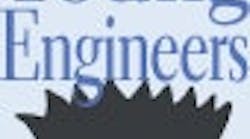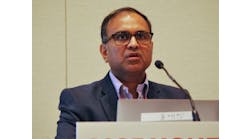It seems to me lately that whenever U.S. industry isnt bemoaning the dearth of young people interested in engineering careers, were dissing the ones who do enter the workforce as woefully unprepared. Its a common lament: Graduates of the countrys 300 or so undergraduate engineering programs often emerge well-grounded in theoryalmost to the exclusion of other competenciesbut lack the practical experience, the communication skills and the business sense needed to hit the ground running upon entering the real world.
Want business context? Get an MBA. Want to be able to speak and write? Thats for the liberal arts grads on the other side of campus. No room for that stuff in a hard-core engineering curriculum.
Or is there?
Well, the folks at the countrys first independent engineering college of the new millennium are on their way to find out. Last years first graduating class of the Franklin W. Olin College of Engineering in Needham, Mass., started classes in the fall of 2002 and embarked on an innovative four-year curriculum designed to infuse a rigorous engineering education with business and entrepreneurship as well as the arts, humanities and social sciences, according to the schools web site.
The college was founded through a more than $400 million grant from the Olin Foundation with the ambitious goal of changing the way students learn about engineering. Indeed, the stated mission of the school is to prepare future leaders through an innovative engineering education that bridges science and technology, enterprise and society. Skilled in independent learning and the art of design, our graduates will seek opportunities and take initiative to make a positive difference in the world.
Admission is highly competitive; degrees are granted in electrical and computer engineering, mechanical engineering and engineering (which allows for considerable self-directed pursuit); and each of the 304 students is on a four-year, full-tuition scholarship.
It was clear that engineers needed to have business and entrepreneurship skills, creativity and an understanding of the social, political and economic contexts of engineering, says Richard K. Miller, college president.
The F.W. Olin Foundation decided the best way to maximize its impact was to help create a college from scratch that can address these emerging needs, Miller added. And by creating a college from scratch, we can approach education in a whole new waya way that will best serve the engineers of the new millennium.
The curriculum is based on the Olin Triangle, a combination of rigorous science and engineering fundamentals, entrepreneurship and the liberal arts. The school also espouses a deep commitment at all levels to active learning and interdisciplinary courses built around hands-on projects. This real-world approach culminates in SCOPE (Senior Consulting Program for Engineering), a significant, year-long engineering project for an actual client.
And for those of us in the automation community, it is especially gratifying to see instrumentation and controls represented not only in the course work, but also among the companies sponsoring SCOPE projects. Rockwell Automation, for example, has charged a team of students with identifying, assessing and developing a viable industrial application for a microfluidic sensor chip. aPriori, an enterprise cost management software company, has students developing real-time cost models of manufacturing processes. And a team sponsored by Pratt & Whitney is developing multi-variable probes for wirelessly characterizing flows through the companys gas turbine engine subsystems.
Olins annual graduating class may only be 75 students, but the lessons learned there may be just what we need to rework engineering education nationwide.

Leaders relevant to this article:




